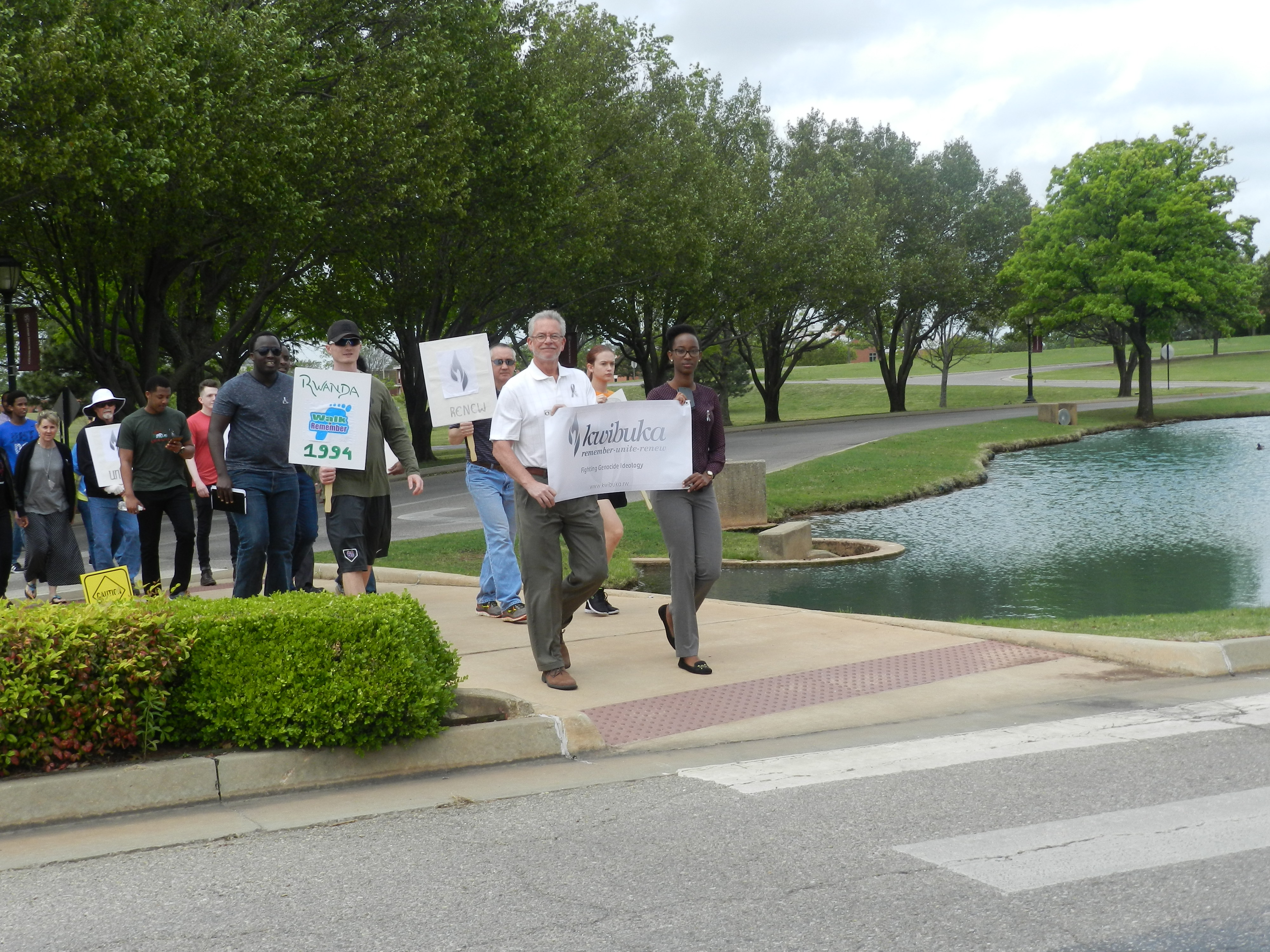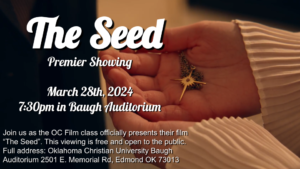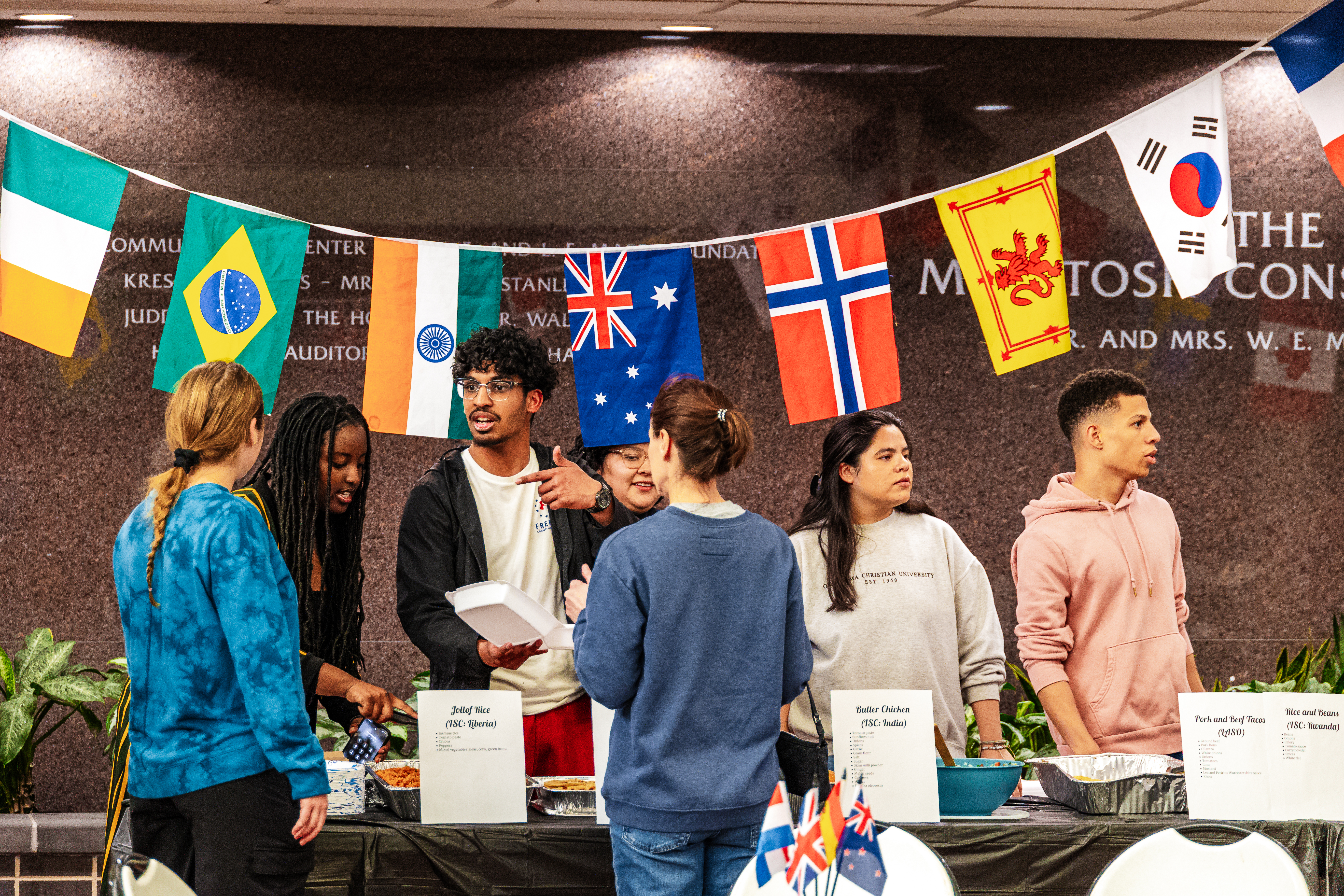Marking 22 years after the 1994 Rwandan genocide against the Tutsi, Oklahoma Christian University students, faculty and staff commemorated the historic event with an annual Walk to Remember on April 16.
“Kwibuka,” which means “remembering” in Kinyarwanda, has become a custom in Rwanda, but also around the world wherever Rwandans are present, according to senior Edwin Cyubahiro.
Cyubahiro said remembering the genocide is important, even though it’s emotional to remember.
“It is essential that we remember and commemorate the genocide everywhere there is a Rwandan community,” Cyubahiro said. “It was an event that marked our past and will mark our future forever. We want to make sure everybody knows the right story; has the right information to fight the ideology that caused it so that we can go forward and make sure that it doesn’t happen again.”
Walk to Remember began with a time of reflection during a walk around the Eagle Trail. Following the walk, students gathered in Scott’s Chapel to discuss genocide and other relevant topics.
Genocide survivor and theology student Regis Ngaboyisonga spoke about remembering the genocide and gave his personal account of the event.
“We commemorate not to repeat history,” Ngaboyisonga said. “Building a nation based on love, reconciliation, forgiveness depends on how much you remember. Remembering is very profound.”
A paneled discussion, conducted by senior Michelle Umurungi, consisted of three speakers: students John Nkuranga and Ngaboyisonga and professor of business Don Drew. The panel discussed ideology and how it lead to the 1994 massacres, leadership and new ideology, rebirth and development of the state and the role of Rwandans in staying the course.
Drew said that, after visiting the Rwandan memorial cite in 2008, he was impressed to see how far the country has come with a spirit of commitment not to repeat the same mistake.
With a different theme every year for the commemoration events, this year’s theme and focus was “Fighting genocide ideology.”
“There are different themes every year, planning and implementing to fight genocide,” Nkuranga said.
Nkuranga urged Rwandans not to take the progress of their country for granted and to follow leaders before them by taking their opportunities seriously and fighting to continue the progress.
According to Umurungi, the different themes aim to start and encourage a greater discussion about the genocide from various aspects.
Organizers of the Walk to Remember event started the event to inform the campus and community about the genocide and create discussion on campus with the growing number of Rwandan students, according to Umurungi.
“It’s in line with what is going on in Rwanda right now, we had the genocide in 1994 and we want to strengthen that it is the background of what is going on today,” junior Jean Rutonesha said, “Getting time to sit together as brothers and sisters, reminding ourselves what happened and forging from it to build a better future.”



















I would like to add that part of relaying the right information and starting a conversation is to uncensor how such atrocities have been branded by the community from abroad. Beginning with calling it what it was, “The 1994 Genocide Against The Tutsi”, would go a long way in addressing the story and the key issues Rwanda had to overcome to get to where she is Today. Thank you Oklahoma Christian for partnering with us to commemorate for the 22nd time.